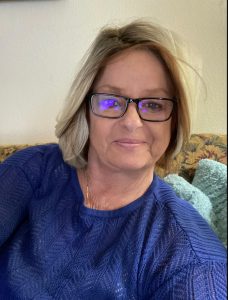
Life has a way of bringing people back to where they belong. At least that’s what 66-year-old lifelong learner Robin Perry (’93, ‘16) believes.
When her children were young, Perry attended Armstrong State University and earned a bachelor’s degree in English with the goal of becoming a high school teacher. However, she worked part time in cellular sales while completing her degree and continued on that path to own and operate five cellular stores in the Chatham County area.
It wasn’t until her children were grown that Perry decided to revisit her dreams. She began teaching as a substitute teacher to gain experience and realized her passion for special education.
“I love my students, and I want to do everything I can to help them read fluently,” said Perry.
Perry went on to earn a Master of Arts in Teaching in Special Education (’16) from Georgia Southern University and worked in the Savannah-Chatham County Public School System for five years before transitioning to a third grade inclusion (special and general education) classroom setting at Liberty Elementary School in Midway, Georgia.
During that time, she noted a gap in reading education and began working toward a way to alleviate it.
“In the last few years of teaching, it seems that students are missing early phonics instruction,” said Perry. “I taught siblings who were a year apart in school but had the same coping strategy for their reading deficits, which was odd. It sparked my idea to start researching reading remediation.”
The goal of her research is to find mechanisms focusing on phonics remediation while having students maintain their third grade class work.
“Students who are struggling to sound out words are not grasping the context or meaning of what they are reading,” said Perry. “They are so busy focusing on letter sounds that they lose understanding of the passage. Research shows that if students reach the third grade level without reading proficiency, they will always struggle. I want to help intervene for these students because reading deficits will affect every subject they attempt to learn.”
Perry started a three-part comprehensive reading program to assist students. Working in small groups of three or less students, she focuses on remediation of letter sounds, followed by sight card practice, and finally, the group reads the same ability-leveled passage every day.
“By having the students read something fun and expressive together repeatedly, they become confident and excited to participate,” said Perry. “In some ways, this replicates that at-home reading experience that helps developing young readers learn to love reading.”
Since moving to distance learning in the wake of COVID-19, Perry refuses to lose progress with her students and continues to emphasize reading with them by hosting virtual meetings so they can converse with each other and the teachers. They also utilize online platforms such as FlipGrid, Epic and Read Works. For those who don’t have access to the materials, Perry mails or delivers paper packets to their homes.
“We are really trying to provide a no-pressure learning scenario for students, but I don’t want to lose the progress that we have made,” she said. “That is another reason I have decided to host a summer program to keep working with my students who need to continue reading skills.”
Perry will complete an Ed.S. in Special Education this summer.
“Well, for one, college is free because I’m over the age of 62,” she said with a laugh. “But also, I’ll never stop researching until the day I die. I love it. I do professional learning every day to try to learn more about how I can help these students and better serve them.”


Bulloch Public Safety
03/04/2026 Booking Report for Bulloch County

Chattooga Local News
Oversight Committee Releases Bill and Hillary Clinton Deposition Videos

Chattooga Local Government
Fallen Heroes: Four Army Reserve Soldiers Die in Kuwait Drone Strike

Bulloch Public Safety
02/09/2026 Booking Report for Bulloch County

Bulloch Public Safety
02/16/2026 Booking Report for Bulloch County

Bulloch Public Safety
02/20/2026 Booking Report for Bulloch County

Bulloch Public Safety
03/02/2026 Booking Report for Bulloch County

Bulloch Public Safety
02/17/2026 Booking Report for Bulloch County







